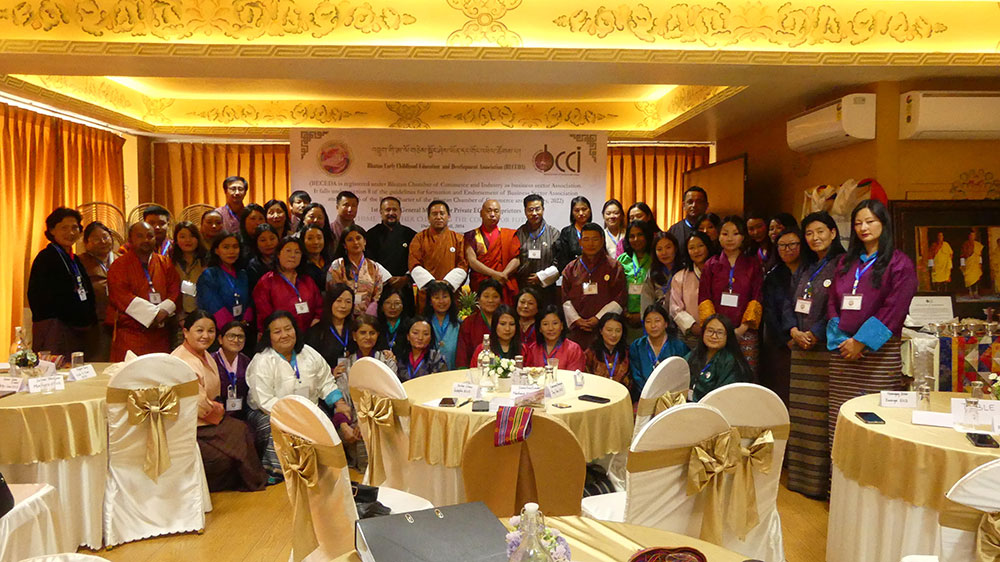KP Sharma
To tackle the problem of isolation among early childhood education centres in the country, the Bhutan Early Childhood Education and Development Association (BECEDA) has been established under the umbrella of the Bhutan Chamber of Commerce and Industry (BCCI).
Private early childhood education and development (EECD) centres in the country are facing the difficulties in their growth as institutions and maintaining professionalism.
These challenges primarily arise from a lack of strong collaboration and connections among the country’s ECCDs.
The shortage of well-trained facilitators in both government and private ECCDs, along with perceived discrimination against private centers compared to government-run facilities, has worsened the service delivery gap.
This situation has widely challenged the operation of private ECCDs.
BECEDA, by uniting the owners of different centres, can enable networking opportunities, knowledge-sharing forums, and joint projects. These initiatives aim to improve the quality of early childhood education and development in private ECCD centres.
During the inaugural annual general meeting of the association held yesterday in Thimphu, Jamtsho, the founder of the BECEDA and proprietor of Gelephu Child Care Centre (GCCC), said that the association will serve as a crucial collective voice for private ECCD centres in the country.
BECEDA, Jamtsho said, aims to create a platform where private ECCD centres can come together to advocate for their collective interests and contribute to the growth and development of ECCD services in Bhutan.
He said that although all private ECCD centers in the country share a common goal, they have remained disconnected due to various reasons.
Director General of the Department of School Education, Karma Galey, said that the formation of an association would act as a crucial link between the government and private ECCD centres.
“This bridge would facilitate a better understanding of the sector’s challenges and enable collaboration to address them effectively,” Karma Galey said.
Despite the perception of private entities as commercial ventures, he pointed out that businesses involved in education carry risks, especially when it comes to the well-being of children and securing their future.
Karma Galey also highlighted that the government has outlined several initiatives to promote and enhance ECCD in the country as part of the 13th plan. These initiatives include plans for training and professional development of ECCD facilitators.
In addition, he informed proprietors that the ministry is prioritising the introduction of Bachelor of Education (B.Ed) courses and postgraduate courses in ECCD in the coming years.
“This initiative aims to ensure that children are cared for by adequately trained professionals,” Karma Galey said.
The government is also exploring alternatives such as home-based facilities and devising management strategies for ECCD centres as part of the 13th Plan, according to Karma Galey.
There are more than 700 ECCD centres in the country today. More than 60 of them are privately owned.


